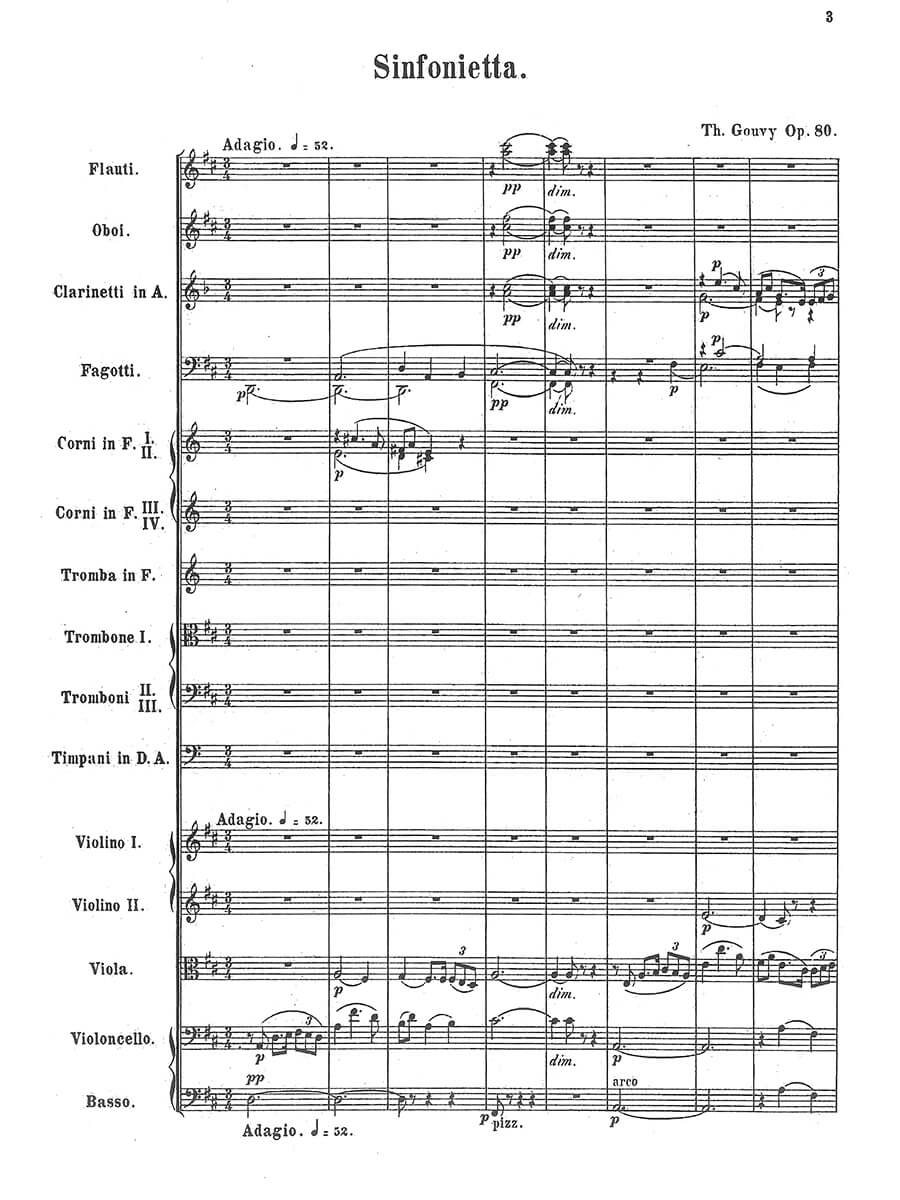Sinfonietta for orchestra Op.80
Gouvy, Théodore
31,00 €
Preface
Théodore Gouvy – Sinfonietta, Op. 80
(b. Goffontaine [now Saarbrücken-Schafbrücke] 3 July 1819; d. Leipzig, 21 April 1898))
Adagio-Allegro p.3 – Scherzo p.35 –Tema con variation p.64 – Finale p.83
Théodore Gouvy was French and Walloon by descent, from a family of steel mill owners. He was born just four years after Prussia had annexed his birthplace from Napoleonic France, the Rhineland area around present-day Saarbrücken. His first tongue was French and he studied at at Sarreguemines and Metz in France. Having decided to pursue a musical career he began to travel, meeting Niels Gade, Mendelssohn, Franz Liszt, the Schumanns, and Rossini. After his family bought the Wendel steel mills in Hombourg-Haut in 1850, he divided his time between Paris and Leipzig, eventually settling in the Villa Gouvy in the Lorraine countryside. But that was in 1868, just three years before Prussia – again – annexed his homeland. He was awarded the Prix Chartier and the Légion d’honneur, and he was a member of the committee and jury of the Société des Compositeurs, as well as the Société Nationale de Musique. He also held academic appointments in Berlin and Leipzig.
His orchestral Sinfonietta dates from 1885 in Leipzig. It was originally intended as a symphony (he wrote six in all) but he retitled it at the suggestion of Carl Reinecke and Salomon Judassohn. Gouvy wrote of his happiness during its composition: “I feel like a convalescent who after many months of fasting can no longer eat his fill”. It has the fresh ‘open-air’ feeling of Brahms’s Second Symphony; its four-movement structure is unassuming, but the music is engaging, with the spirit of Mendelssohn and Schumann hovering around. It is a worthy companion of similar pieces by composers such as Bruch, Gounod, Rubinstein, or Stanford.
Phillip Brookes, 2019
For performance material please contact Kistner & Siegel, Brühl.
Score Data
| Genre | Orchestra |
|---|---|
| Size | 210 x 297 mm |
| Printing | Reprint |
| Pages | 130 |
